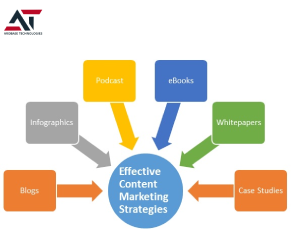- In the fast-paced digital landscape of today, where every millisecond counts, web performance optimization has emerged as a critical factor for online success. From enhancing user experience to impacting search engine rankings, the speed at which a website loads can make or break its performance. In this blog post, we'll delve into the importance of web performance optimization, particularly in relation to SEO, and explore how businesses can leverage it to gain a competitive edge.
Web Performance Optimization: Enhancing User Experience
- Imagine visiting a website only to find yourself waiting impatiently as it sluggishly loads. Frustrating, isn't it? This scenario is not only detrimental to user experience but also increases the likelihood of visitors abandoning the site altogether. Research indicates that a mere one-second delay in page load time can result in a significant drop in conversion rates. Therefore, optimizing web performance is imperative for ensuring a seamless and enjoyable user experience.
- Several factors contribute to the overall performance of a website, including server response time, page size, and the number of HTTP requests. By implementing techniques such as browser caching, image optimization, and minification of CSS and JavaScript files, businesses can significantly improve their website's loading speed. This, in turn, leads to higher engagement, lower bounce rates, and increased customer satisfaction.

Speed Matters for SEO
- In addition to its impact on user experience, website speed plays a crucial role in search engine optimization (SEO). Search engines, particularly Google, consider page speed as one of the ranking factors when determining the position of a website in search results. This means that faster-loading websites are more likely to rank higher than their slower counterparts.
- Google's emphasis on page speed is evident in initiatives such as the Page Experience Update, which prioritizes user-centric metrics like Core Web Vitals. These metrics, which include loading performance, interactivity, and visual stability, directly influence how Google evaluates the overall user experience provided by a website. Therefore, by optimizing web performance and improving these key metrics, businesses can enhance their chances of ranking well in search engine results pages (SERPs).
- Moreover, with the proliferation of mobile devices, the importance of mobile optimization cannot be overstated. Mobile users expect fast and responsive websites, and search engines recognize this by factoring mobile-friendliness into their ranking algorithms. As such, ensuring that your website is optimized for mobile devices is essential for maintaining a competitive edge in today's digital landscape.

Conclusion
- In conclusion, web performance optimization is not just a nicety; it's a necessity in the realm of online business. By prioritizing speed and implementing strategies to enhance website performance, businesses can reap numerous benefits, including improved user experience, higher conversion rates, and better search engine visibility. In an era where attention spans are dwindling and competition is fierce, every second counts. Therefore, investing in web performance optimization is a strategic decision that can yield significant returns in the long run.



